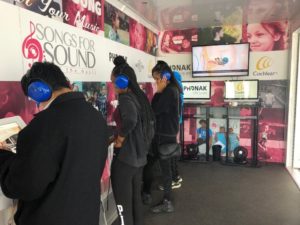Uncovering the Gaps in Hearing Health at All Ages
Written by: Jaime Vernon

Image courtesy of Songs for Sound.
It was March 2009. I woke up and got my family ready for the day, thinking today was a checklist kind-of-day like every other. You know, mothers live and breathe by the checklist. This day started off like the rest but included one pretty important task: taking my daughter, Lexi, in for an overdue hearing test. At that moment, I had no idea how drastically our lives were about to change.
Lexi wasn’t given a newborn hearing screening. She was tested at 10 weeks but failed. We were told it was due to her being “fussy” and to follow up in 6-9 months.
So here we were on the day of the hearing test. We pulled into Vanderbilt Bill Wilkerson Center (VBWC), certainly with concerns regarding her hearing loss. A month prior, I had been told that her issues were likely nothing to worry about. A local pediatrician said Lexi may not be trying to say her first words yet, and that some kids don’t talk until they’re 18 months of age.
I did my best to confirm those suggestions by using the internet. Don’t get me wrong, you can get a lot of good information from quality websites from reputable organizations. But I had no experience with hearing loss, and I didn’t know where to turn for the best information.
So, like anyone, I held onto the information that made me feel good. I held onto statistics like “1 in 1000 are deaf, 3 in 1000 have some hearing loss.” I held onto information like “she could have fluid that causes hearing loss.” I heard what I wanted to hear.
On the day of the hearing test, I was not prepared for the news I was about to hear. My husband and I with our physician at VBWC. As she tested Lexi, there was no response.
I thought to myself, “She must be giving her soft sounds.”
“Beep, Beep, BEEEEEP!”
No response.
Before I knew it, the chair turned, and Lexi was gently handed to us. All of our lives were transformed with a few compassionate and caring words.
“I’m so sorry to tell you this; however, Lexi is in fact deaf,” our physician told us.
That day, I remembered picturing her future in my mind. A black and white sketch of a school off in the distance. No playground, no leaves on the trees. I thought Lexi would have to be shipped off to a school far away from us and isolated from her friends and family.
But that illusion quickly abated as we learned of cochlear implants and speech therapy for the deaf. We enrolled her into the Mama Lere Hearing School, followed Auditory-Verbal Therapy to a “t”, and Lexi rolled onto victory as she does now in everything she tries. She made up two years of speech in her first year, doubling the rate of progress. Why? BECAUSE SHE GAINED ACCESS TO HEARING!
In our society, there exists a “gap” in hearing healthcare where people slip under the radar for one reason or another. Perhaps, they don’t “fit” the deaf or hard of hearing bill perfectly. In Lexi’s case, she comes from a family without a history of hearing loss. She didn’t test positive for the connexin genes, though we’re uncertain about other unidentified genes that may be associated with hearing loss. Her childhood was seemingly normal. She had one ear infection and one round of antibiotics. All of these reasons allowed her to fall into this gap. And because of that, Lexi was deaf for the first several months of her life without us being aware.
With this realization, a fire in me was ignited to change the way Americans are considered when it comes to their hearing. Nine years ago, we started the process to form a charity called Songs for Sound. Here, we believe in creating awareness, increasing access and encouraging action. We must empower people to make the right choice.
We have five programs: The Hear the Music Project – a nationwide hearing health tour that provides free hearing screenings, info on hearing technology, audiology and general hearing health prevention. To date, we’ve given nearly 22,000 free hearing screenings and generated over 200 million awareness impressions. We also have an annual Hear the Music Camp for families with hearing loss children. No cost, no worries, just a weekend of bonding and spending time with other families alike.
We have an international mission project we’ve been building in Montego Bay, Jamaica where unemployment is high and hearing healthcare systems are non-existent. We won’t multiply this model until it is efficient and sustainable. The most intriguing and fastest growing program is the Sound for Soldiers program serving military and veterans. So many veterans struggle to navigate Veterans Affairs (VA) or don’t have VA benefits. We help with free services and support. Lastly, we are launching our first proof of concept chapter (more info coming soon).
All of these programs evolved from Lexi’s story. When we were searching for answers, when Lexi was wandering life in a silent world, the gaps caused unnecessary delays. The gaps exist in babies, children, teenagers, young adults, adults, seniors, and veterans because we are not aware. The average American still believes a person can go without some hearing—until it happens to them. They turn up the volume too loud causing hearing loss. Americans live with untreated hearing loss at an alarming rate.
Our data shows that while age does determine how prevalent hearing loss is in any certain demographic, hearing loss does not discriminate. The data actually reveals an increase in mild hearing loss in our younger demographics. It’s not hard to imagine why this is the case. Children are receiving direct sound stimulation more today than ever through the constant use of earbuds and cell phones. We simply don’t do enough to protect our children’s ears.
Americans are still unaware that if you don’t treat hearing loss, you lose access to language, your job could suffer, and your child could miss out on a lot of information – even with a mild hearing loss. We don’t realize that people with untreated hearing loss are two times more likely to experience depression or suffer from early onset dementia.
Our ears are the gateway from sound and information to brain health, but there is a huge problem with awareness. As part of Better Hearing and Speech Month, we want to encourage you to help us close the gaps in hearing healthcare. Honor your family member or friend who is deaf or hard of hearing by taking these actions:
- Encourage everyone you know to get annual hearing tests or screenings.
- Carry hearing protection with you and be an example at loud events.
- Turn your volume to safe listening levels using safe listening apps.
- Become a “Hearo” for a family member or friend who needs to get help by taking them to an audiology appointment.
- Refrain from words like “never mind” or “forget it” when someone living with hearing loss is unable to hear clearly.
- Receive free hearing screenings and information on Songs for Sound’s mobile hearing health experience through a free “Hear the Music” event.
To learn more about communication options, hearing technology, and more, visit AG Bell’s website.
